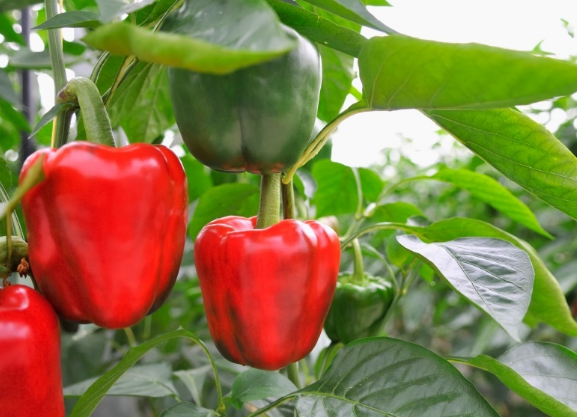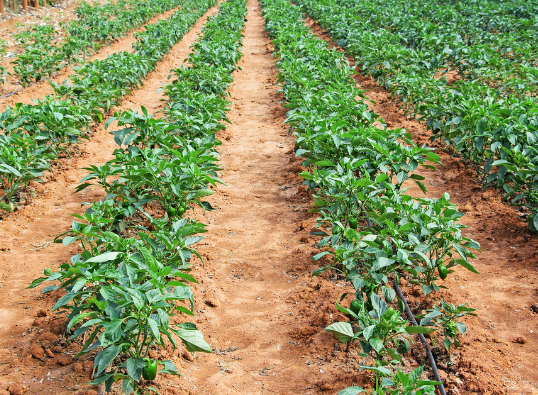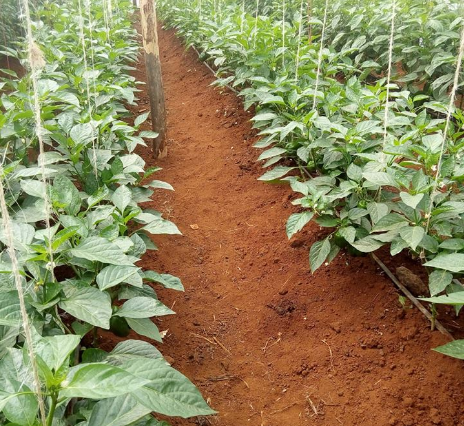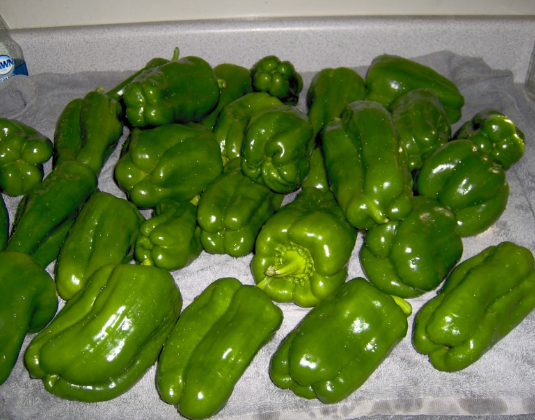If you perform a simple Google search for the keyword “Capsicum Farming in Kenya” or “Pilipili hoho farming” I am sure you will comes across dozens of articles hailing this agri-business as one of the best investments one can possibly make. Some call it a low-cost, high yield investment. Others describe it as one of the few farming products with a ready market. But just how true are these claims? Is capsicum farming as profitable as they describe it in blogs; is it a good business idea for a small investor? Here are the answers.
Requirements for Farming Capsicum
There are two ways to farm capsicum. The first way is through open ground farming and the second alternative is through greenhouse. The greenhouse option is more popular because it yields better harvests and minimizes on usage of pesticides and fungicides although it’s a bit expensive to set up. Open ground farming on the other hand isn’t all that bad either, it’s cheaper to set up and productivity can still be improved by tweaking a few things here and there.
- Open Ground Farming
To practice open ground farming you will require a fertile piece of land preferably in an area that receives adequate rain and is neither too hot nor too cold (20 – 25 degrees centigrade). Most parts of Central Kenya, Central Rift Valley, Western and Nairobi meet these conditions. Then you will till the land. Get some seeds from the agrovet and plant them in a nursery before transferring them to the farm. You will need to have a consistent supply of water and labour to ensure that your farm is well taken care of and that production is optimized.
Capsicum Seeds – 0.5Kg/Ha Cost:Ksh2,000
DAP Fertilizer – 25Kg Cost:Ksh2,500
NPK/CAN Fertilizer – 50Kg Cost:Ksh4,000
Manure Compost – Ksh200 per Bag
Pesticides and Fungicides – Ksh5,000
Water supply and drip irrigation – Ksh30,000
Labour and Others – Ksh10,000
RECOMMENDED BUDGET: Ksh 50,000
This arrangement can yield 120 Kilograms of healthy capsicum per week on less than a quarter acre of land or up to 800Kilograms over the entire harvesting season.
- Greenhouse Farming
Greenhouse farming is hailed for its benefits particularly in improving the quality of produce and maximizing on value per acreage. To use this strategy you will need to invest a good 8meter by 15 meter greenhouse with drip irrigation pipes incorporated. You can order one from Amiran or other local contractors. Under this formula your spending will be something like this:
Capsicum Seeds – 0.5Kg/Ha Cost:Ksh2,000
NPK/CAN Fertilizer – 50Kg Cost:Ksh4,000
Manure Compost – Ksh200 per Bag
Pesticides and Fungicides – Ksh5,000
Water storage and supply – Ksh20,000
Labour and Others – Ksh10,000
Complete Greenhouse – Ksh180,000
RECOMMENDED BUDGET: Ksh230,000
A greenhouse will boost production, reduce water consumption, prevent most of the common capsicum diseases and most importantly enhance quality. A capsicum fruit from a greenhouse is easy to distinguish and it easily finds market both locally and internationally. A well maintained greenhouse structure of 8meters by 15 meters can yield 180Kilograms on average per week or 1250Kilograms per harvesting season.
Is Capsium Farming In Kenya A Profitable Venture?
Capsicum farming’s returns like in any other business depend on how well you manage the farm. A well managed open farm (1/8 acre) can produce Ksh64,000 per season while a smaller greenhouse structure can produce Ksh100,000 per season.
The secret to succeeding in this business lies in maximizing the available space. For instance, you can put two greenhouses on a 1/8 th acre plot and that will give you about Ksh200,000 per season. You can keep adding more greenhouses as your investment grows and as you seek to tap into crop rotation.
In short, the success or failure in this business depends on how big your dreams are. You can start small with an open farm and then scale up to greenhouse after the first one year. As with any other business, the secret is patience.






















